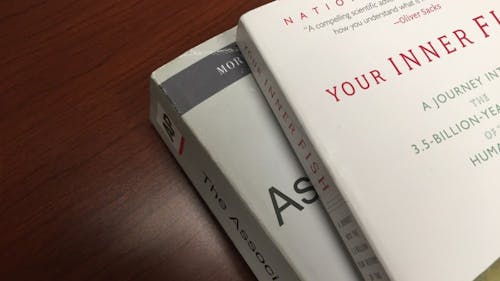Students at Rutgers advocate for open textbook initiative

The Rutgers University Student Assembly (RUSA) has been working on an initiative to increase the amount of open textbooks in the classrooms.
Most textbooks need to be bought, either in bookstores or online, but open textbooks are free and accessible simply by searching them up online, said Julien Rosenbloom, a School of Arts and Sciences sophomore and legislative affairs committee chair of RUSA.
Since last December, he has been collaborating with other RUSA members to push for a legislative bill that would require all public universities in New Jersey to submit a plan to the Secretary of Higher Education explaining how they would transition their most popular course offerings to providing open textbooks. He said depending on statistics such as the threshold of enrollment, certain classes would then use open textbooks instead of purchasable, physical ones.
“The idea here being that it lowers the barrier, it lowers the cost of entry to universities, especially during the formative years when students aren’t sure what their major is or what they’re interested in,” he said.
As an example, the course Nature of Politics, which Rosenbloom said every political science major has to take, requires books and texts that have to be bought. Since the course is so popular, the open textbook initiative would require professors to design a curriculum that would allow students to access readings for free. On the other hand, upper level political science courses would not need to change, because less students take them.
There are already some courses at the University that provide open textbooks to students though, he said. This is partially due to Rutgers’ Open and Affordable Textbooks Program, which offers the incentive of research grants to professors who implement open textbooks.
“(Rutgers) has a really robust program in place … only in the past 3 or 4 years, it has saved students a total of more than $2 million,” Rosenbloom said.
One course that currently provides students a free, accessible textbook is Introduction to Computer Science, whose textbook is written in HTML on a webpage. Departments do not necessarily need to work with private companies to implement these textbooks, either, he said. As long as the textbook usage is approved by the department, no formal partnership is needed.
Another student involved in the lobbying of the bill is Bijan Terani, a School of Arts and Sciences first-year. He said during a committee meeting, Rosenbloom assigned him a legislative report, or summary of the bill. Terani then realized the potential impact the bill would have on the student body, and decided to pursue advocating for the bill.
The current goal for the bill is to have it up for vote before April, which is when allocations occur at RUSA and bills are voted to pass. Terani said he hopes for a vote on the bill this month, by the end of February. They are currently waiting for an update from Assemblywoman Angela McKnight, who was the legislator who sponsored the bill.
Regarding how the Rutgers administration views the bill, Terani said there has been no direct response from them on RUSA’s efforts.
“I would imagine the University would be rather thankful and supportive of it due to its ability to reduce the cost of education,” he said.
Rosenbloom does not see the bill being implemented this academic year, but instead in the next five years.
“The University is willing already to pledge thousands of dollars to these professors and departments to save students millions, you could kind of deduce from that … over the next five years, there will be more open textbooks used than this year,” he said.



